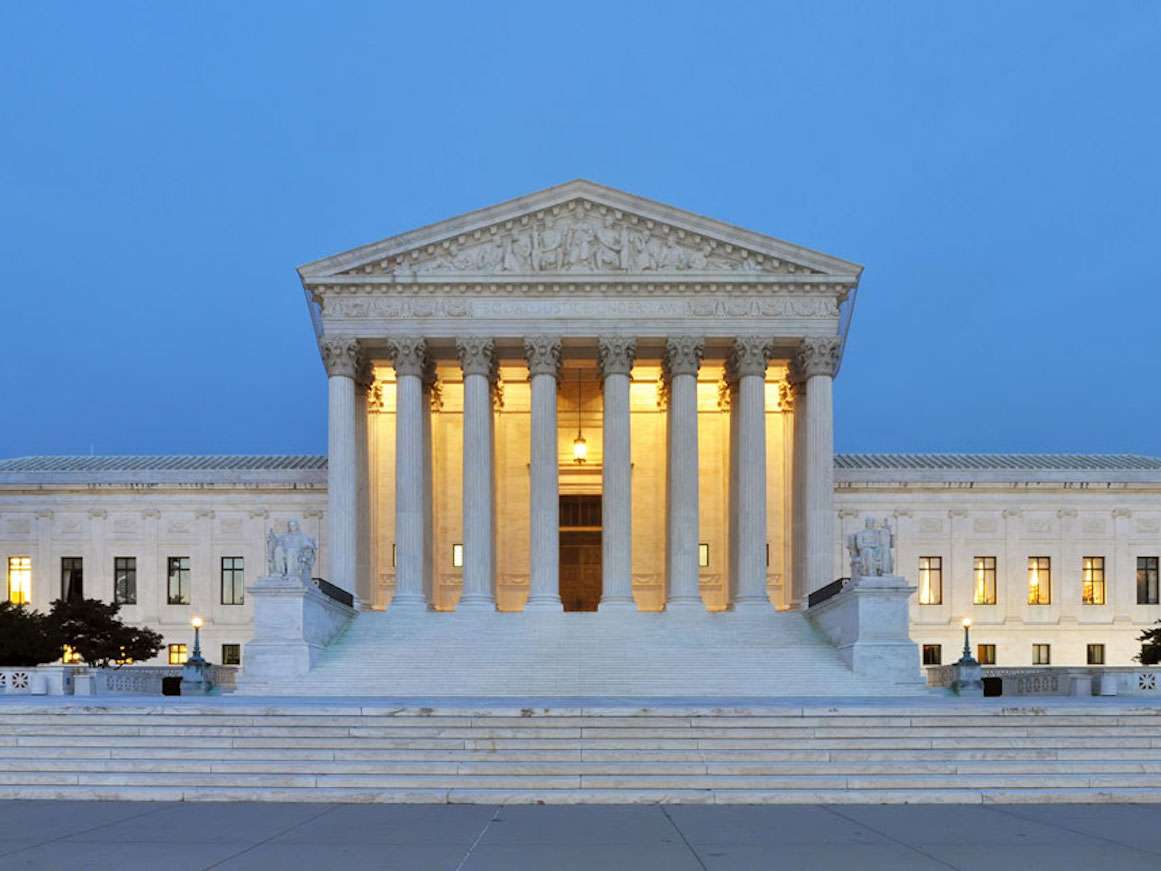[Ilya Somin] Rights and Wrongs of the Supreme Court's Ruling in the Alien Enemies Act Case

Supreme Court Delivers Mixed Ruling on Alien Enemies Act Deportations
Venue Shift and Due Process: A Tug-of-War Over Migrant Rights
The Supreme Court's latest decision in Trump v. JGG regarding deportations under the Alien Enemies Act (AEA) is a complex tapestry of victory and setback. While the Court overturned lower court rulings that temporarily halted deportations, it simultaneously affirmed the right of detained migrants to due process and judicial review of the AEA's invocation.
In a 5-4 decision, with Justice Amy Coney Barrett joining the liberal justices in dissent, the Court mandated that the case be tried in Texas, where the detained Venezuelan migrants are held, rather than in Washington D.C., citing habeas corpus rules. This venue shift, as eloquently argued by Justice Sotomayor in her dissent and legal scholar Lee Kovarsky, potentially complicates the migrants' legal battle.
Navigating the Labyrinth of Habeas Corpus and Systematic Remedies
The Court's focus on habeas corpus as the primary legal avenue for the detainees raises concerns about access to systematic remedies, as noted by Professor Steve Vladeck. Individual habeas petitions, unlike class actions, may limit the scope of relief. However, the possibility of habeas class actions, a practice permitted in some immigration cases, offers a glimmer of hope for broader impact. The ACLU and other advocacy groups are anticipated to pursue this route, and its viability will be a pivotal factor in the ongoing legal struggle.
A Quiet Defeat for the Administration: Due Process Affirmed
Despite achieving the vacatur of lower court rulings, the Trump Administration suffered a significant, if understated, setback. The Court unequivocally affirmed the right of AEA-targeted migrants to due process, echoing the established precedent of Reno v. Flores. This includes timely notice and a genuine opportunity to be heard, ensuring they can pursue habeas relief before deportation. As legal commentator Josh Blackman observed, this represents "a very quiet defeat for the Trump Administration." The practical impact hinges on the interpretation of "reasonable time" and effective access to legal remedies.
Judicial Review: Challenging the Scope of the AEA
Crucially, the Court affirmed the availability of judicial review regarding the AEA's applicability. The Act permits detention and deportation only during declared war or in cases of "invasion" or "predatory incursion" by a "foreign nation or government." This directly challenges the administration's assertion of these matters as non-justiciable political questions. The Court's stance opens the door to legal challenges concerning the definition of "invasion" and whether the Tren de Aragua gang qualifies as a "foreign nation or government," central arguments in the administration's invocation of the AEA.
The Shifting Sands of the Fifth Circuit: A Potential Advantage and a Notable Dissent
While the transfer of the case to the generally more conservative Fifth Circuit may seem advantageous to the Trump Administration, it's worth noting that this court has previously rejected the classification of illegal migration and drug smuggling as "invasion" under the Constitution, interpretations potentially relevant to the AEA. Though Judge James Ho offered a dissenting opinion arguing otherwise, his position lacked support from his colleagues on the Fifth Circuit, signaling its limited traction.
In conclusion, the Supreme Court's ruling presents a complex and nuanced landscape, leaving the legal battle over the Alien Enemies Act far from settled.